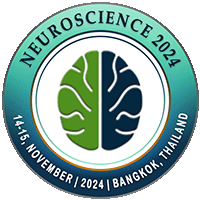
Sandra Marcela Cardona Moica
University of Sinú, ColombiaTitle: Impact of COVID-19 on the cognitive performance of recovered patients one year after the infection: a cohort study using the MoCA-T tool
Abstract
Introduction: Cognitive compromise secondary to SARS-Cov-2 infection has been evaluated in multiple investigations, documenting a series of neurological and psychiatric sequelae. Although the impact of acute and subacute infection on cognition is clear, few studies have been carried out to identify the progression or persistence of these alterations in the long term. The instruments used to assess cognitive performance consist of face-to face or virtual tests; however, in patients with COVID-19, the MoCA-T test (a modified and validated version of the Montreal Cognitive Assessment Test performed independently) has not been used by telephone.
Objective: To estimate the association of COVID- 19 infection with the development of cognitive impairment one year after discharge.
Methodology: An observational, analytical and prospective study of a cohort of patients with COVID-19 hospitalized in two IPS in the city of Cartagena was carried out. The infection was confirmed by RT-PCR or IgG serology and all patients without neurocognitive disorders who agreed to participate in the study were included. Their sociodemographic and clinical characteristics were identified and, one year after discharge, the MoCA-T Test was applied. The comparative cohort included volunteers with no neurocognitive comorbidities and no history of SARS-Cov-2 infection. The outcome to be evaluated was the association of the COVID-19 infection with the development of cognitive impairment, estimating the relative risk (RR). Variable analysis was performed with frequency, median, and IQR calculations. Hypothesis contrast was carried out using the Fisher test and the Mann Whitney U test. RRs were adjusted using the Poisson regression model to control for confounding.
Results: A total of 138 patients were evaluated. The COVID-19 cohort included 70 participants, of which 58.6% had a severe infection. 45.7% of the patients who presented the infection reported cognitive symptoms and the most frequent symptoms were memory (32.9%) and attention disorders (22.9%). 61.4% of the patients with COVID-19 presented cognitive impairment while in the uninfected cohort it was detected in 19.1% of the participants (p= <0.001). Half of the patients with COVID-19 had a MoCAT score less than 18 (IQR 15-20) compared to a score of 20 (IQR 19-20) in non-infected patients. The most affected domains were executive function, memory and language. The severity of the infection impacted on cognitive performance, with the outcome being worse in patients with severe infection (p= 0.0001). Based on the linear regression model, COVID-19 infection was significantly associated with a score <19 on the MoCA-T test (RR: 2.22, 95% CI: 1.09-4.51).
Conclusions: COVID-19 infection is associated with an increased risk of cognitive impairment at one year of follow-up. The patients present memory symptoms and compromised attention, and a lower cognitive performance is evidenced in the MoCA-T test, with a predominance of deficits in language, memory, and executive functions.
Keywords: COVID-19, coronavirus, cognitive impairment, neurological sequelae, Montreal Telefónica Cognitive Assessment.
Biography
Sandra Marcela Cardona Moica has completed her medical degree at the age of 24 years from University of Tolima, Colombia. She is right now at her last year of Neurology residence at the University of Sinú, Colombia. She has published on local and international journals of medicine and has been asked as an editorial board member of several journals.

